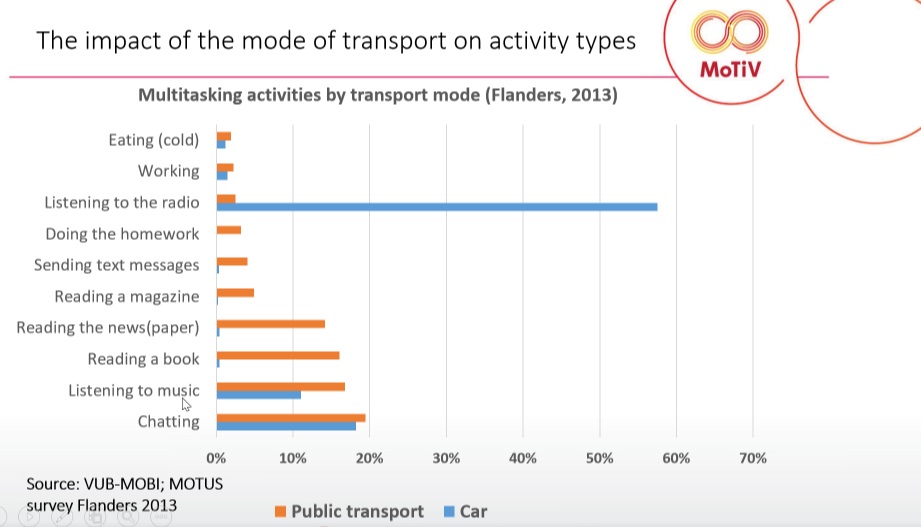Over the course of 33 months, the MoTiV project contributed to advance research on the Value of Travel Time (VTT) by introducing and validating a conceptual framework for the estimation of VTT through a European-wide data collection campaign. The data was gathered through the Woorti smartphone app.
The final MoTiV conference have showcased the results of the project, and the largest data collection campaign on VTT in Europe. An excellent line up of speakers haven´t only discussed the outputs but the project’s legacy to future work, its relevance to better public policy/business outcomes and contextualise the results of the project within academic surroundings
Ghadir Pourhashem, Senior Researcher in Intelligent Transport Systems in UNIZA, presented the MoTiV data collected throughout 7 months in 8 European countries from more than 3,300 users. An open dataset of a least 56,000 trips to be used by other researchers. The project defines a new valuable view of what is worthwhile of time travel by user experience across different angles like transport mode, gender, generations and culture. “One of our goals is to include a gender-sensitive and inclusive approach to travel design and support transport policies”, said Ghadir.
MoTiV implements a new concept of mobility and time value, based on a good balance between personal values and mobility needs. About this new approach, Imre Keserű, Urban mobility expert at MOBI VUB, pointed out the differences between passive and active activities while people travel: "In Flanders, most car drivers listen to radio, music & chatting to users while public transport users have a broader variety of activities, working reading etc”.

For Cristina Pronello, associate professor at Politecnico di Torino, it’s crucial to understand the emotions of these users to use the car and work on their perceptions. “The choice of mode of transport lays on habits, If you make a habit of your mobility, it will be harder to change it. Car users are the most difficult to change behaviour”, stressed the Italian speaker.
The new VTT approach proposed by MoTiV relies on three pillars: productivity, fitness and enjoyment. "This model can help to understand differences across transport modes based on this three-factor. This is an opportunity for new empirical evidence on Value of Travel Time", point out Ludovico Boratto during his intervention. “MoTiV reports about feelings, the purpose of the trip, how the users felt about the worthwhileness of travel time, what they were doing during the trip, their motivations…”, added Joao Bernandino.

The conference ended with recommendations for policymakers and stakeholders. “Enjoyment is the element having the highest impact on total worthwhileness, urban planners must make the travel experience fun and relaxing", explained Holger Haubold, from the European Cyclists Federation. Other important factor to be counted by transport decision makers is the weather, planner should provide shelter for rain and sun, heated waiting rooms, providing drinking water next to cycle lanes, planting trees (shadows), showers in offices, etc.

Please check out the different presentations of the MoTiV Final Conference in our video section. You can also review the whole conference here.

